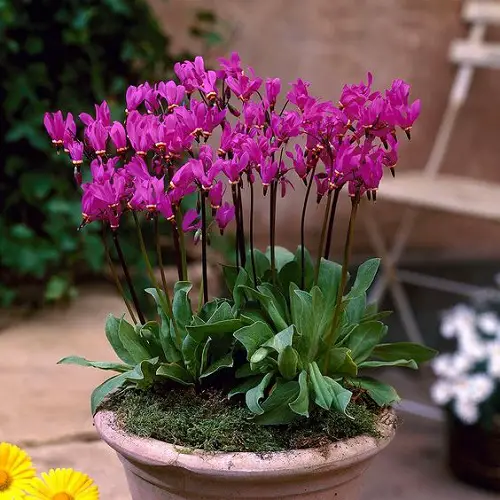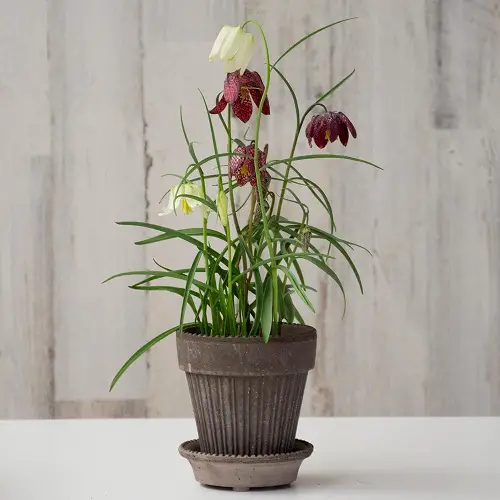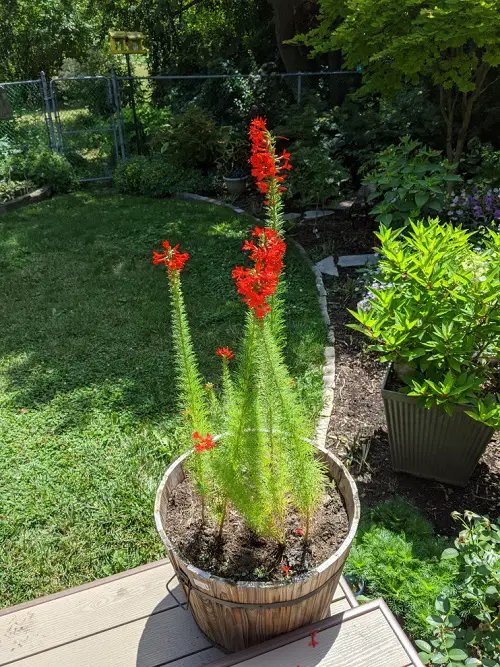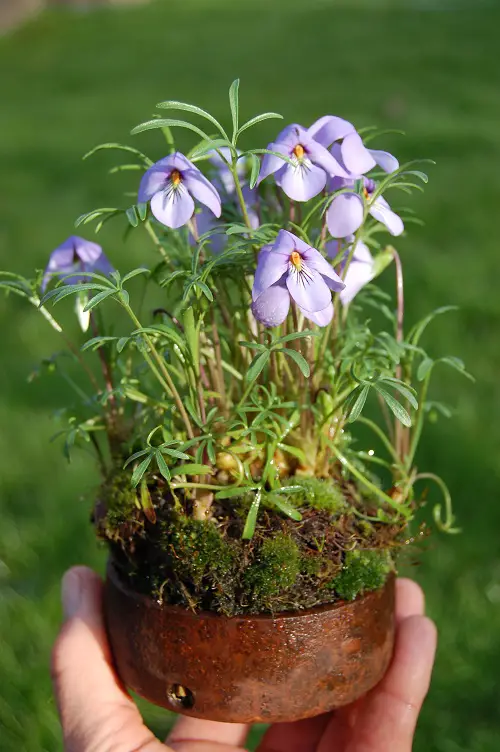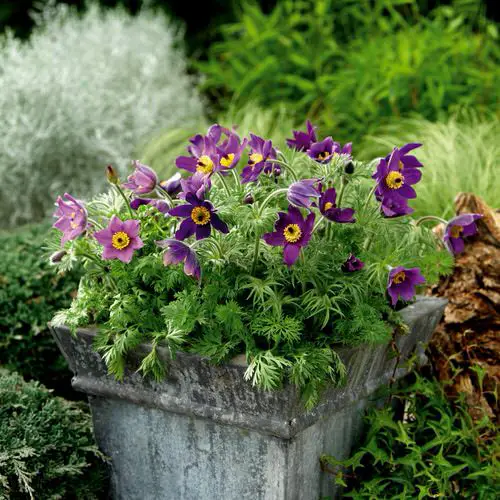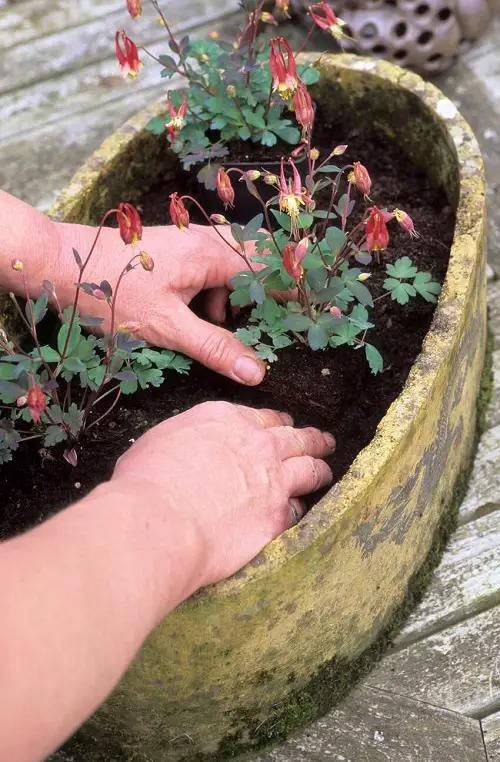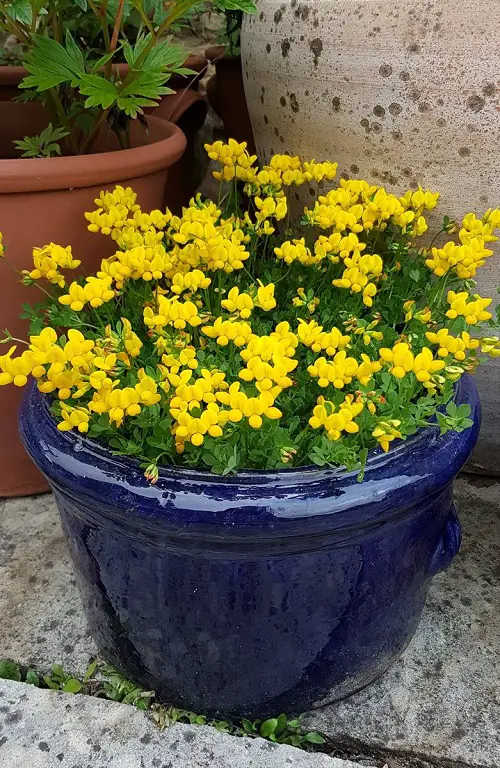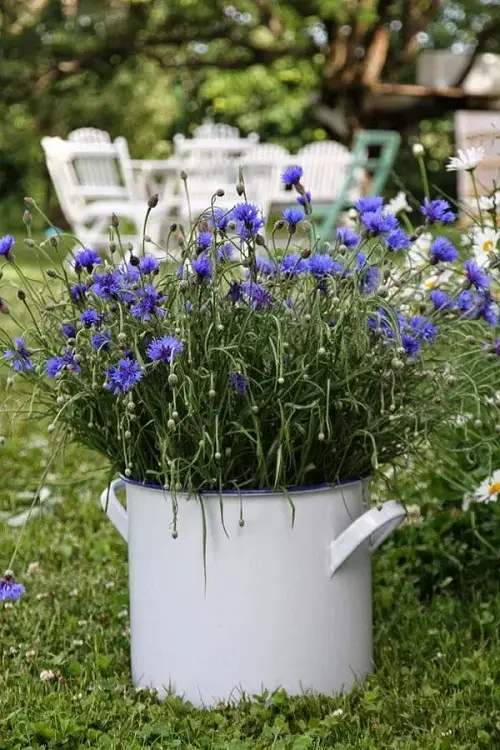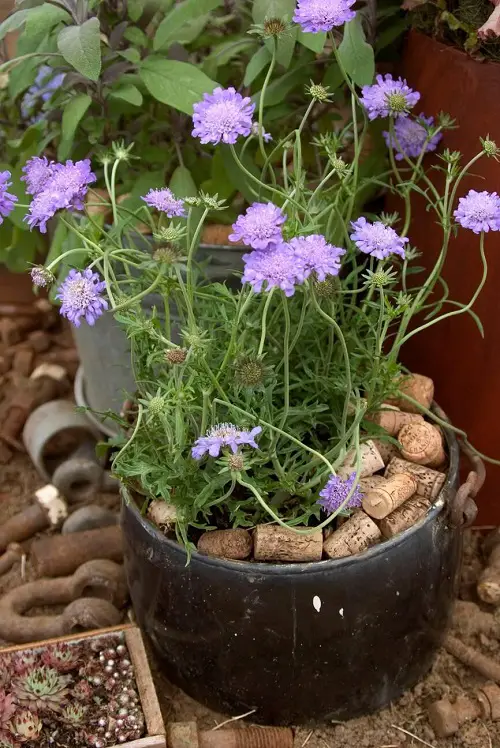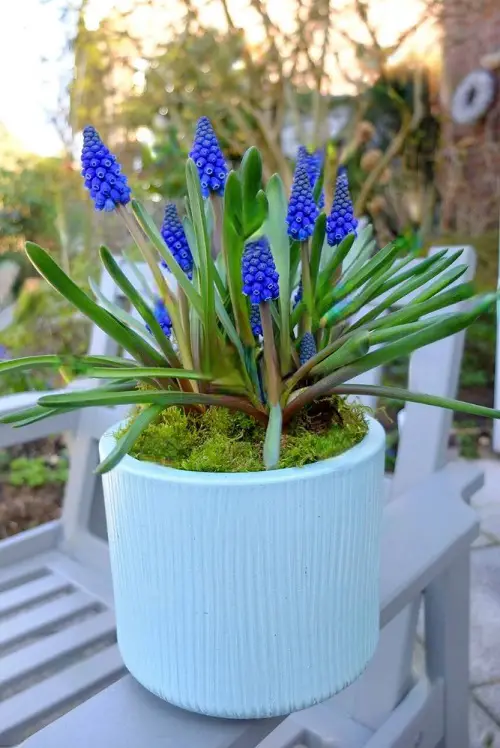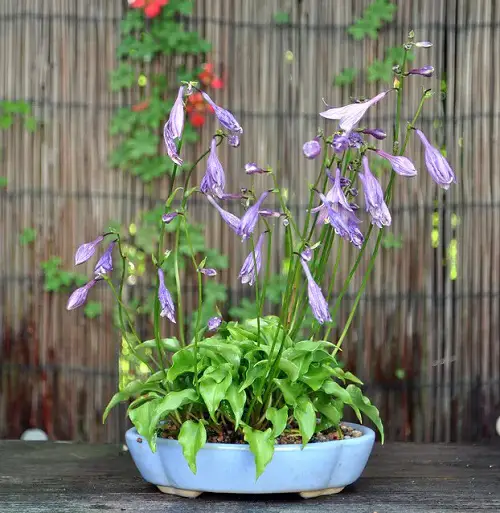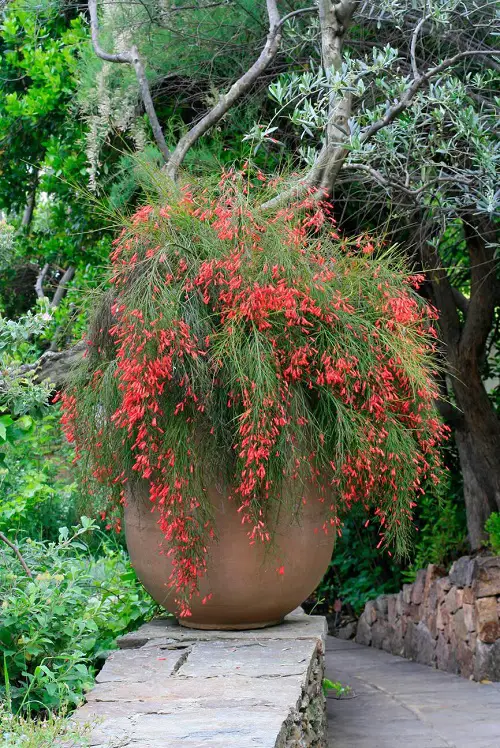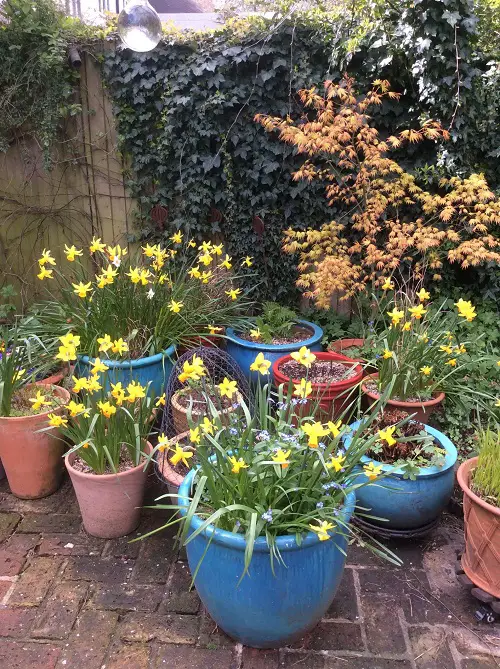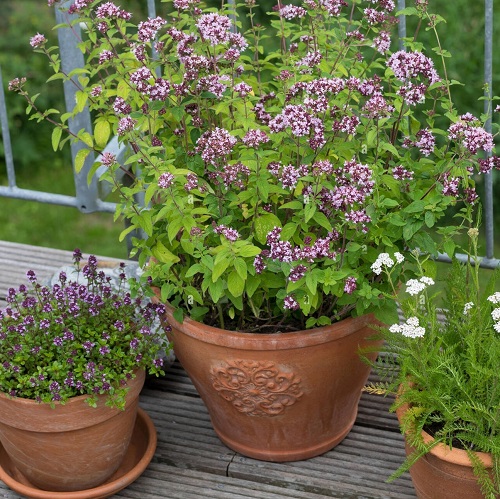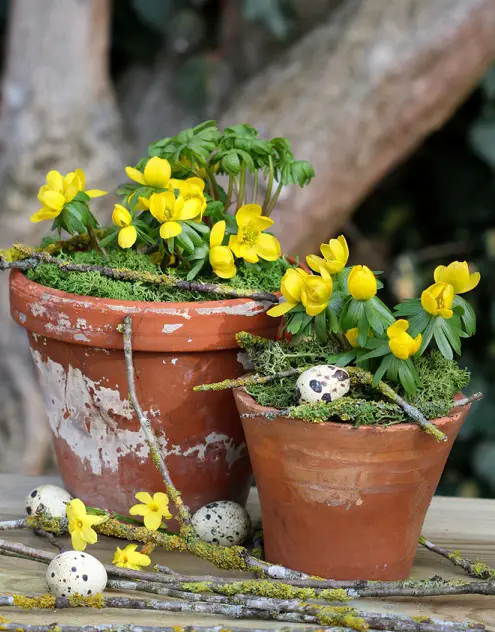Looking for the Best Wildflowers For Pots that are both easy to maintain and beautiful to look at? Well, this list has them all!
Wildflowers for pots are always a good idea because they don’t demand much attention to grow, making them a great pick for someone who’s a fussy gardener!
Best Wildflowers For Pots
1. Shooting Star
Botanical Name: Dodecatheon meadia
Shooting Star is a beautiful wildflower with delicate pink flowers and low-growing foliage. The best part, being accustomed to growing in the wild, it demands a little care.
2. Chocolate Lily
Botanical Name: Fritillaria biflora
Chocolate Lilies are named so after their pretty chocolate-colored flowers. These wildflowers for pots are a great pick because of their cocoa-like scent!
3. Meadowfoam
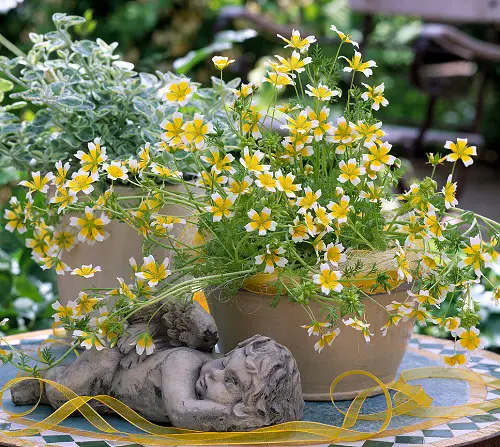
Botanical Name: Limnanthes douglasii
Meadowfoams are called poached eggs, and for good reason. The blooms of this wildflower are tiny and yellow and white, just like an egg!
4. Blue-eyed Grass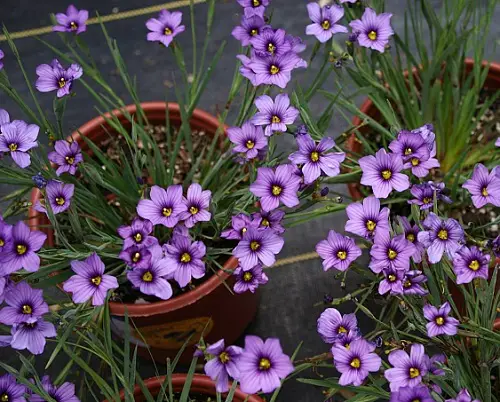
Botanical Name: Sisyrinchium bellum
Who wouldn’t want pretty purple flowers with violet patterns and yellow centers, right? Blue-eyed Grass gives you just that. Just give it loamy soil that can hold moisture.
5. Scarlet Gilia
Botanical Name: Ipomopsis aggregata
Scarlet Gilias deliver on their name and have tall stems with comb-like leaves that make it look like a fern. It has gorgeous scarlet-colored flowers in the shape of bells, too.
6. Prairie Smoke
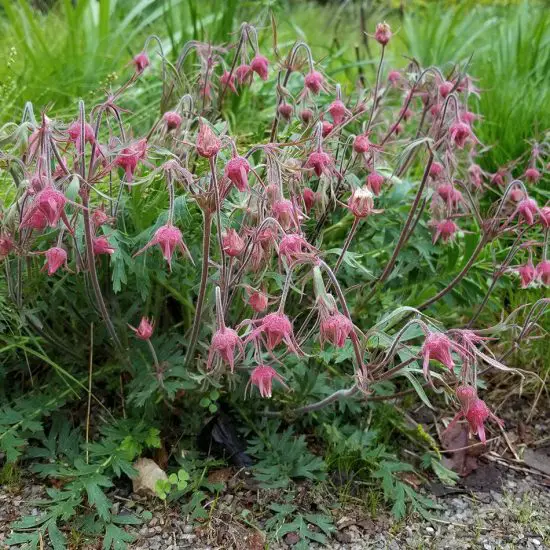
Botanical Name: Geum triflorum
Prairie Smoke is native to North America and has unique seed heads. It also produces small, bell-shaped flowers that are mostly red or pink, but the feathery seed heads steal the show.
7. Bird’s Foot Violet
Botanical Name: Viola pedata
Bird’s Foot Violet is also called Mountain Pansy. You can find it in the wild in sandy areas, but it is a great container choice as well. Give it full to partial sun and dry-acidic soil.
8. Pasque Flower
Botanical Name: Pulsatilla vulgaris
You can’t miss the Pasqueflower when talking about wildflowers for pots. It’s a part of the Buttercup family and has large, purple flowers with yellow stamens.
9. Wild Columbine
Botanical Name: Aquilegia canadensis
Wild Columbines grow on rocky slopes and woodlands, so if you want a true wildflower for pots, go with this one. It’s also the state flower of Colorado.
10. Birdsfoot Trefoil
Botanical Name: Lotus corniculatus
Birdsfoot Trefoil is a part of the Pea family and is a low grower. You can plant it in pots or as a valuable forage crop for livestock. It is high in protein and is also non-bloating.
11. Cornflower
Botanical Name: Centaurea cyanus
Cornflowers are so named because they were actually weeds often seen in cornfields. This wildflower is really easy to grow from seed. Just plant it in spring and keep it in full sun.
12. Field Scabious
Botanical Name: Knautia arvensis
Another great pot grower is the Field Scabious. It needs well-draining growing medium and an open space to spread its roots, so a wide container would be a good pick.
13. Grape Hyacinths
Botanical Name: Muscari
Grape Hyacinths are low maintenance and forgiving if you forget to water them once a while. So, if you’re just starting out or need a wildflower to grow in a pot without much fuss, this is the one!
14. Harebell
Botanical Name: Campanula rotundifolia
Harebells have delicate stems that grow a foot tall and end in bell-shaped flowers. These can be a bit tricky to grow in pots as they prefer dry, poor-quality soil.
15. Poppy
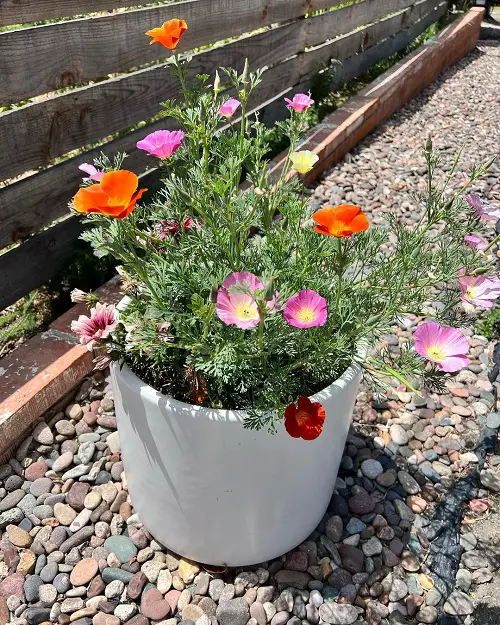
Botanical Name: Eschscholzia californica
Poppies can be easily grown in pots as well. But don’t pick random ones! You should go with annual varieties like the California Poppy or the Flanders Poppy.
16. Primrose
Botanical Name: Primula spp.
If you want to grow Primrose in pots, you should go for one that’s 6-8 inches deep and wide. Also, plant them in spring or early summer and water the pot generously right after planting.
17. Firecracker
Botanical Name: Russelia equisetiformis
This wild beauty can be tamed in a pot and it will reward you with showy red flowers that look like they’re bursting with celebrations! Just give it plenty of sunlight and that’s all the plant needs to be full of blooms!
18. Snowdrops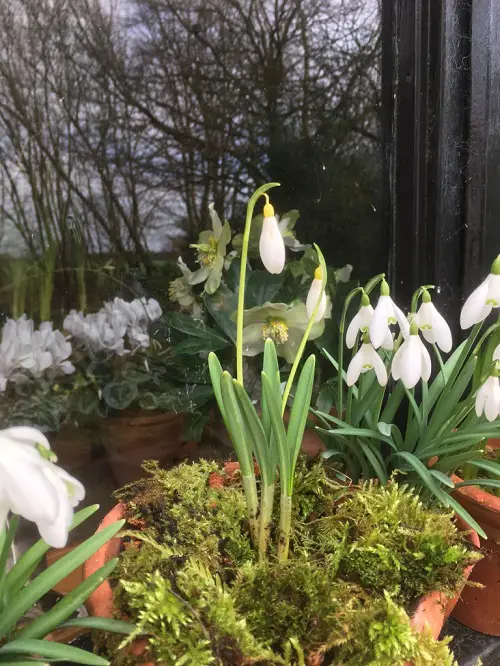
Botanical Name: Galanthus nivalis
Snowdrops are also well-suited for pots. These wildflowers bloom from September to November and need cooler temperatures with partial shade.
19. Spiked Speedwell
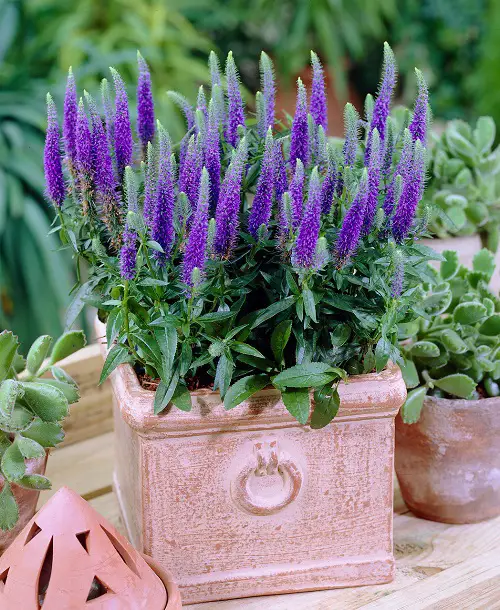
Botanical Name: Veronica spicata
Spiked Speedwell wildflowers are not that common, but they’re really pretty. They have 1 foot tall spikes covered in blue, pink, purple, or white flowers and are a great ornamental choice for pots.
20. Wild Daffodils
Botanical Name: Narcissus pseudonarcissus
Wild Daffodils are a great choice for naturalizing in gardens as they are deer and rabbit resistant. It looks pretty in pots and is a low-maintenance choice.
21. Wild Marjoram
Botanical Name: Origanum vulgare
You can also plant Wild Marjoram wildflowers in pots. They grow 2-3 feet tall and produce tiny pink or purple flower clusters that bees and butterflies love.
22. Wild Thyme
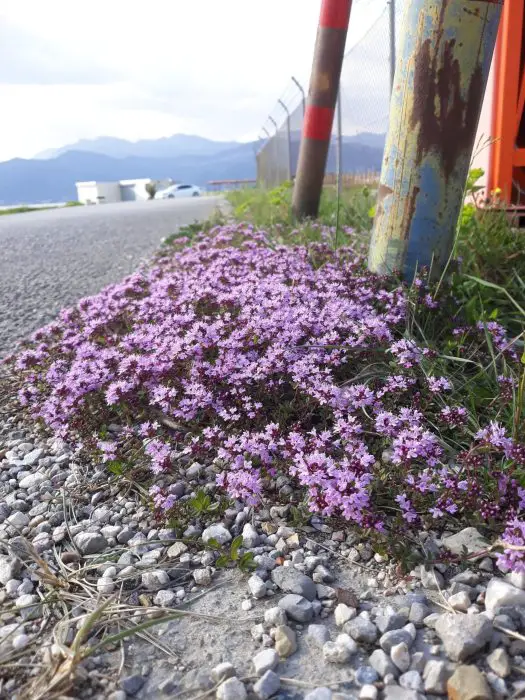
Botanical Name: Thymus serpyllum
Drainage is key when growing Wild Thyme wildflowers in pots. Gentle watering does it, and so does the full sun. It will give you tiny flowers throughout the season.
23. Winter Aconite
Botanical Name: Eranthis hyemalis
Winter Aconite is an early-spring flower that has yellow buttercup-like flowers that bloom in late winter or early spring. You should plant it in the fall about 2-3 inches deep in the pot.
How to Use These Wildflowers in the Garden?
- For vibrant and bold look, pair Scarlet Gilia with Shooting Star and Poppy for a red-pink theme. Meadowfoam’s yellow and white flowers will pair well with the Blue-eyed Grass and Bird’s Foot Violet.
- Do not forget to combine Blue-eyed Grass with shooting star for a beautiful contrast of foliage. Wild Thyme’s small leaves, with their ground covering nature, will complement the feathery foliage of Prairie Smoke, perfectly.
- To introduce the concept of height variation, grow Chocolate Lily and Scarlet Gilia with shorter plants like Grape Hyacinths and Meadowfoam, with the latter plants at the front.
- If you love to see the plants in bloom, grow Snowdrops and Winter Aconite—they’ll bloom from late winter to early spring. Also, pair Wild Columbine and Pasque Flower for flowers in spring.


